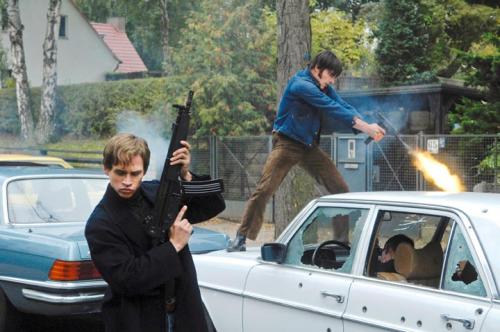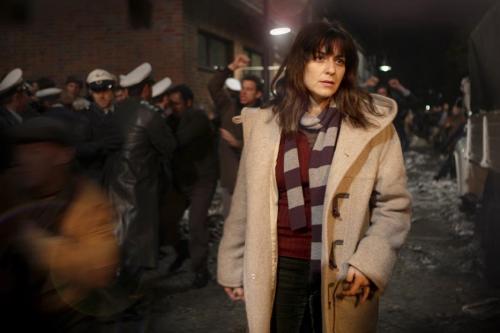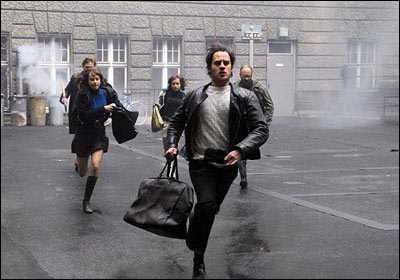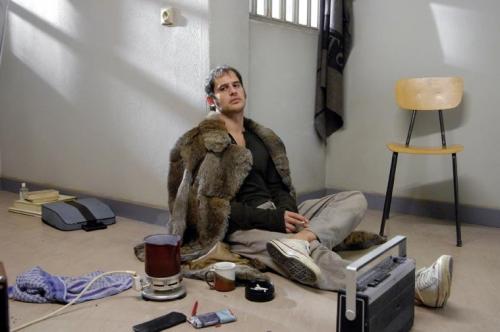The Baader-Meinhof Complex | 1970s Germany’s War on Terror

The latest updates, reviews and unmissable series to watch and more!
You are now subscribed
Your newsletter sign-up was successful
Want to add more newsletters?

ONCE A WEEK
What to Watch
Get all the latest TV news and movie reviews, streaming recommendations and exclusive interviews sent directly to your inbox each week in a newsletter put together by our experts just for you.

ONCE A WEEK
What to Watch Soapbox
Sign up to our new soap newsletter to get all the latest news, spoilers and gossip from the biggest US soaps sent straight to your inbox… so you never miss a moment of the drama!
Selected as Germany’s entry for next year’s Oscars, The Baader-Meinhof Complex has already created quite a stir in its home country. It’s easy to see why. The film tackles a highly sensitive period in recent German history – the violent campaign waged during the 1970s by the left-wing Baader-Meinhof gang against the West German state that left 47 people dead. A generation later, the wounds to the nation’s psyche remain raw.
But it’s the movie’s portrayal of its machine-gun-toting rebels that’s caused the biggest fuss, leading some critics to accuse the movie of glamourising terrorism. As played by some of Germany’s leading, most attractive stars, the group’s leaders come off, claim the film’s detractors, as Bonnie and Clyde-style heroes.
That’s more than a little unfair. True, the film does reflect the radical chic that adhered to the era’s leather-jacket-wearing revolutionaries, but its depiction of the brutal violence they wrought is unflinching. Indeed, what seems to have annoyed some people is the fact that director Uli Edel and producer and screenwriter Bernd Eichinger don’t take sides. They don’t condemn, but nor do they excuse. Instead, they leave us to make up our own minds.

Edel and Eichinger do give us plenty of food for thought, though. It’s fascinating, for example, to see their recreation of the political turmoil from which the Baader-Meinhof gang emerged in the late-1960s, a time when revolutionary student movements swept across western Europe. Protest against the Vietnam war played a part, but there were other causes too, and the film shows us how a demonstration on 2 June 1967 against an official visit to Berlin by the Shah of Iran radicalised many young Germans after the police set upon the protestors with savage brutality and a student, Benno Ohnesorg, was shot dead.
This scene is undeniably shocking in the film, and you can begin to understand why so many Germans (one in four under 30, apparently) felt sympathy when a group of young militants led by charismatic hothead Andreas Baader (Moritz Bleibtreu) and his firebrand girlfriend Gudrun Ensslin (Johanna Wokalek), joined later by left-wing journalist Ulrike Meinhof (Martina Gedeck), set out in the coming years to smash the system.

But the violence of the Baader-Meinhof gang (or Red Army Faction as they styled themselves) is equally shocking on screen. And as the group graduates from firebombing department stores to bank raids, kidnappings, bomb attacks on US army bases and assassinations, you get a sense that some of its members are getting off on the violence. Might some viewers too? Well, if you were so inclined, the fate of the RAF leaders is sobering – a series of arrests, imprisonment, protracted trials and death by suicide in prison.

What happened when Andreas Baader met the PLO? Find out here.
The latest updates, reviews and unmissable series to watch and more!
A film critic for over 25 years, Jason admits the job can occasionally be glamorous – sitting on a film festival jury in Portugal; hanging out with Baz Luhrmann at the Chateau Marmont; chatting with Sigourney Weaver about The Archers – but he mostly spends his time in darkened rooms watching films. He’s also written theatre and opera reviews, two guide books on Rome, and competed in a race for Yachting World, whose great wheeze it was to send a seasick film critic to write about his time on the ocean waves. But Jason is happiest on dry land with a classic screwball comedy or Hitchcock thriller.


